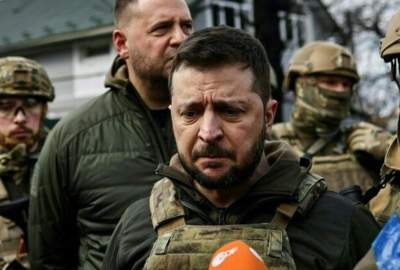President Hamid Karzai's decision to include Fahim in government played a generally positive role in helping to unite Tajiks and Pashtuns in the multi-ethnic government. And the United Nations described Fahim as a "good and trusted partner" of the UN mission in Afghanistan.
Karzai used Fahim's status as a leading member of Afghanistan's Tajik minority (the second-largest ethnic grouping after Karzai's Pashtun community), to split the Tajik vote that might otherwise have gone to Karzai's Tajik rival, Abdullah Abdullah.
Mohammed Qasim Fahim was born in 1957 in a small village in the Panjshir Valley, the son of a Muslim cleric, and studied Islamic law in Kabul.
He came to prominence as a Mujahideen commander for the Northern Alliance coalition of guerrilla fighters led by Ahmad Shah Massoud during the campaign against Soviet occupation from 1979. After the collapse of the pro-Soviet regime in 1992, Fahi became a key figure in Massoud's United Front government, heading its intelligence operations.
After the Taliban took power in 1996, Fahim retreated to the Panjshir Valley to continue the campaign against the Taliban, both in the valley and in the northern city of Mazar-i-Sharif, where fighting erupted in 1997.
He backed Karzai to lead the UN-brokered interim government and in exchange was named defence minister. But within months American officials were said to have picked up intelligence that Fahim was considering assassinating Karzai.
As a result, in July 2002, US Special Forces wrested presidential bodyguard duties away from soldiers loyal to Fahim.
When Afghans finally got a chance to elect their president for the first time, in 2004, Karzai bowed to international pressure not to put Fahim on his ticket, but Fahim remained a powerful figure and in 2006 Karzai, faced with a resurgent Taliban, returned him to government as an adviser.
Fahim survived several Taliban assassination attempts, but in later years was beset by health problems which required hospital treatment in Germany. He died of a heart attack.
The Age
Karzai used Fahim's status as a leading member of Afghanistan's Tajik minority (the second-largest ethnic grouping after Karzai's Pashtun community), to split the Tajik vote that might otherwise have gone to Karzai's Tajik rival, Abdullah Abdullah.
Mohammed Qasim Fahim was born in 1957 in a small village in the Panjshir Valley, the son of a Muslim cleric, and studied Islamic law in Kabul.
He came to prominence as a Mujahideen commander for the Northern Alliance coalition of guerrilla fighters led by Ahmad Shah Massoud during the campaign against Soviet occupation from 1979. After the collapse of the pro-Soviet regime in 1992, Fahi became a key figure in Massoud's United Front government, heading its intelligence operations.
After the Taliban took power in 1996, Fahim retreated to the Panjshir Valley to continue the campaign against the Taliban, both in the valley and in the northern city of Mazar-i-Sharif, where fighting erupted in 1997.
He backed Karzai to lead the UN-brokered interim government and in exchange was named defence minister. But within months American officials were said to have picked up intelligence that Fahim was considering assassinating Karzai.
As a result, in July 2002, US Special Forces wrested presidential bodyguard duties away from soldiers loyal to Fahim.
When Afghans finally got a chance to elect their president for the first time, in 2004, Karzai bowed to international pressure not to put Fahim on his ticket, but Fahim remained a powerful figure and in 2006 Karzai, faced with a resurgent Taliban, returned him to government as an adviser.
Fahim survived several Taliban assassination attempts, but in later years was beset by health problems which required hospital treatment in Germany. He died of a heart attack.
The Age
Source : Afghan Voice Agency (AVA), International Service







